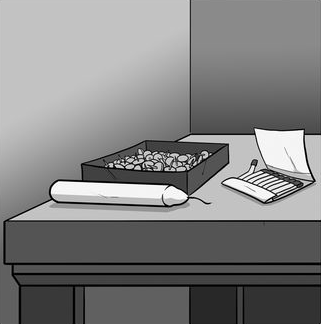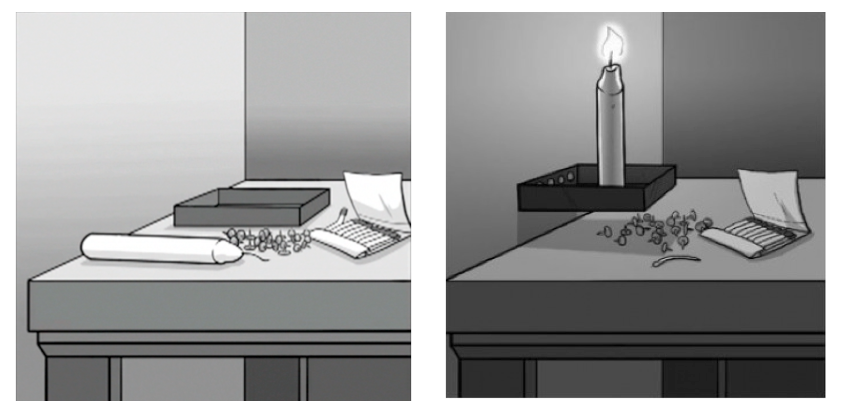Dan Pink: Ted Talk on Employee Motivation
April 25th 2016
https://www.youtube.com/watch?v=rrkrvAUbU9Y
Dan Pink: The Puzzle of Motivation
As a career analyst, Dan Pink describes motivation in two parts: extrinsic and intrinsic. Using experimental analysis and statistics, Dan Pink has relied on information from top economic institutions such as Massachusetts Institute of Technology (MIT), University of Chicago, and the London School of Economics (LSE). How does this relate to the hospitality industry? Every hotel, motel, bed & breakfast, restaurant, and others hire people who are motivated differently. Dan's theory may change the way you look at hiring and how your current theory of motivating an employee may actually be hindering productivity.Incentives dull thinking and block creativity." - Dan Pink
The Candle Problem (1:50)
Karl Dunker's experiment in 1945 measured the relationship between influence of functional fixedness (using an object only in traditional ways) and a participant's problem solving ability. Participants had to attach the candle to the wall, so that the wax didn't drip onto the table. Where is the learning taking place here? [caption id="attachment_5083" align="aligncenter" width="321"] Tacks are placed inside the box.[/caption]
Experiment 1: (3:00)
The learning takes place when a scientist, Sam Glucksberg uses the same candle problem to show the relationship between incentives and performance. The test was performed between two teams: Incentivized with money versus timing for norms/averages. The team that was receiving monetary rewards performed the task on average 3.5 minutes longer. Why? Each team received the tacks inside the box, making the teams use creativity and thinking "outside" the box to solve the problem. That makes no sense right?
Tacks are placed inside the box.[/caption]
Experiment 1: (3:00)
The learning takes place when a scientist, Sam Glucksberg uses the same candle problem to show the relationship between incentives and performance. The test was performed between two teams: Incentivized with money versus timing for norms/averages. The team that was receiving monetary rewards performed the task on average 3.5 minutes longer. Why? Each team received the tacks inside the box, making the teams use creativity and thinking "outside" the box to solve the problem. That makes no sense right?
"Rewards narrow our focus, concentrate the mind."Experiment 2: (5:50) Glucksberg presents the problem in the same manner, using incentives versus performance, however now the tacks are placed outside of the box! No creativity is needed. Everything is clearly in front of them. The objective is clear, use the tray to stop the wax from dripping on the table. The team that was incentivized greatly out-performed the group who was simply told to complete the task. [caption id="attachment_5107" align="alignnone" width="847"]
 Tacks are placed outside of the box.[/caption]
Tacks are placed outside of the box.[/caption]
"If" and "then" rewards work really well for tasks that have a simple set of rules and a clear destination to go to. Think about your own work, are the problems you're facing the ones were talking about here? Do they have a single set of rules? No! The rules are mystifying, the solution if it exists at all is surprising and non obvious."
The Game Experiment (9:00)
To further validate the notion that rewards hinder creativity and affect performance, Dan Ariely and three colleagues did a study on MIT students where they gave them a set of games that required creativity, motor skills, and concentration. Based on performance, the students were given three tiers of rewards: small, medium, large.The Findings
As long as the task involved only mechanical skill, bonuses worked as they would be expected: the higher the pay, the better the performance." But once the task called for "even" rudimentary cognitive skill a larger reward led to poorer performance."These findings were confirmed in 8/9 experiments held in locations including India to throw out cultural bias. These experiments were conducted by scientists from MIT, University of Chicago, Carnegie Mellon, and sponsored by the Federal Reserve Bank of the United States.
Dan's Proposed New Operating System
Employee Motivation should be set around intrinsic motivation. Intrinsic motivation is performing a job or task because you thoroughly enjoy it and it means something to you and others in society. Employee roles should be filled by people who enjoy the job, find it interesting, and something they want to be apart of. Autonomy - The urge to direct our own lives. "Once money is off the table, and people are adequately and fairly paid, give people autonomy." Mastery -Desire to get better and better at something that matters. Purpose - Doing something that is bigger than ourselves.Management did not emanate from nature. Someone invented it. Traditional Management is great if you want compliance. If you want engagement, self-direction works best."
Main Takeaways From Dan Pink
1) Awards/Incentives: Do work, but only in a narrow band of circumstances 2) If/Then Rewards: Often destroy creativity, narrowing focus 3) The Secret to Performance: The secret isn't rewards or punishment, but that unseen motivation. The drive to do things for their own sake, the drive to do things cause they matter.
